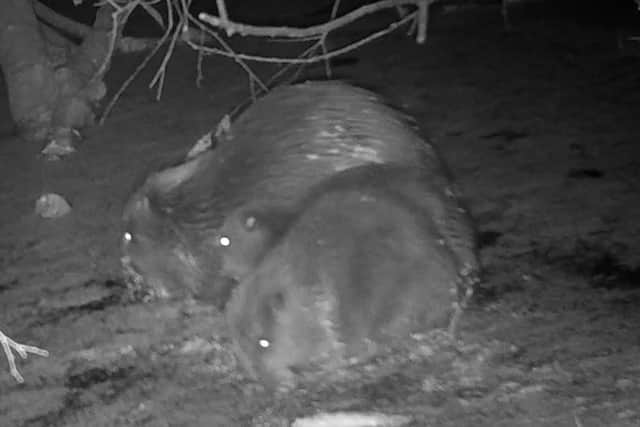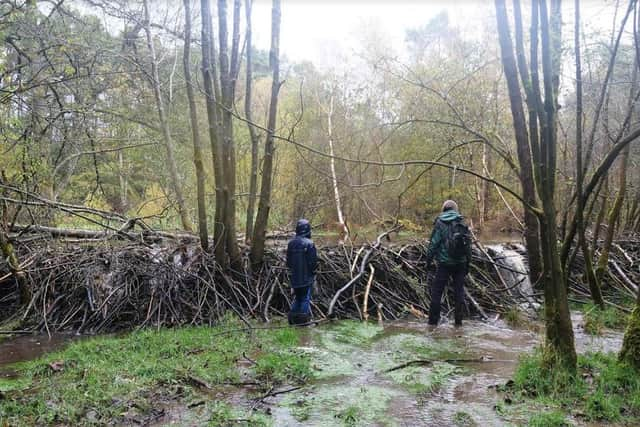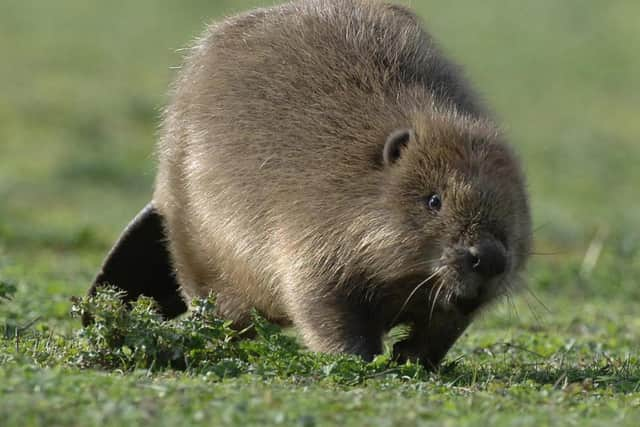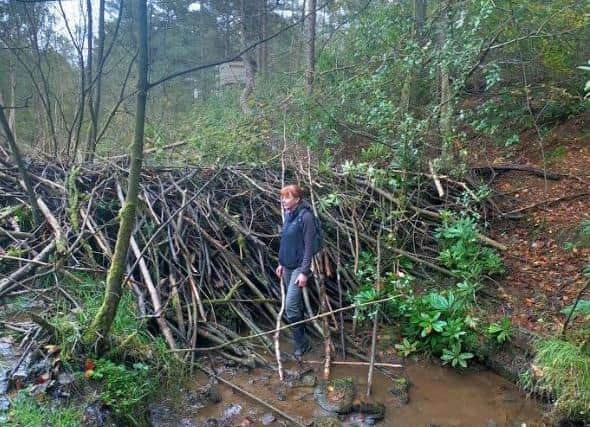Forestry England confirms that Cropton Forest beavers have had fourth baby
After scrutinising CCTV, staff at Cropton Forest discovered two kits had been born last summer, joining their parents and two older siblings, to make a family of six.
The team looking after the beavers are trying to let them live with as little disturbance as possible and keep an eye on their movements with a dozen cameras rigged up around their enclosure.
Advertisement
Hide AdAdvertisement
Hide AdThey made the official announcement that one kit had been born on July 1.


Forestry England’s ecologist in Yorkshire Cath Bashforth said: “I had suspicions, but it took a while to get two kits on the same clip.
"It’s really hard as there are cameras all over and you are wondering would that kit have had time to get from there to there?
“When we finally got the two together on a clip, we realised there were two in there.”
Advertisement
Hide AdAdvertisement
Hide AdThey are waiting for a Scottish expert, Roisin Campbell-Palmer, to visit to carry out a physical examination to assess their sex.


But first they have to lure them into traps with food which they enjoy. “They have a bit of a sweet tooth - apples, carrots, root veg,” said Ms Bashforth.
“We are trying to get the beavers used to them but the deer are eating the bait which is frustrating.”
Ms Bashforth said the parents were taking good care of the latest additions to the brood, and the older siblings were also helping bring up the latest arrivals.
Advertisement
Hide AdAdvertisement
Hide AdThe young ones appear to copy their parents’ behaviour - carrying round small twigs when their parents are moving larger timber.


In the wild the young ones would be expected to disperse to another territory, but being in an enclosure they may continue to live together as a group, or set up another home further downstream.
Beavers are nature’s ecosystem engineers, felling trees and building dams, and changing waterways to create a watery world that suits their needs.
Since a pair of adults were introduced to Cropton Forest in April 2019, as part of a five-year trial, the expanding family has made major changes, rebuilding ponds that had become silted up and constructing a dam up to 6ft high and more than 200ft long
Advertisement
Hide AdAdvertisement
Hide AdTheir home is a lodge made from a heap of sticks on the riverbank, with its own predator-free underwater entrance.


So far the beavers appear to have had a positive impact with their activities slowing the flow of water into a tributary of the River Seven, which downstream has occasionally caused flooding at the village of Sinnington.
But a bigger rainfall event is needed to test that hypothesis.
They’ve certainly had a major impact on biodiversity, with the newly opened stretches of water “seething with frogs and toads” in the Spring.
Advertisement
Hide AdAdvertisement
Hide Ad“I know they are our ecosystem engineers and would change the habitat but I never imagined the extent they would do it in such a quick time,” said Ms Bashforth.
“They are just fascinating and you can’t really tell what they are going to do next.”
The Cropton Forest beavers are one of a small number of reintroduction trials currently running or planned in the UK.
Knapdale Forest and the river Tay in Scotland and the river Otter in Devon are the only places in the UK with wild, free-ranging beavers, according to the Woodland Trust.
Advertisement
Hide AdAdvertisement
Hide AdIn August the government said beavers had bought a “wealth of benefits” to the Otter since their introduction as part of a trial in 2015, including reducing flood risk for housing downstream.
Officials said the animals could “remain there permanently and continue to expand their range naturally”.